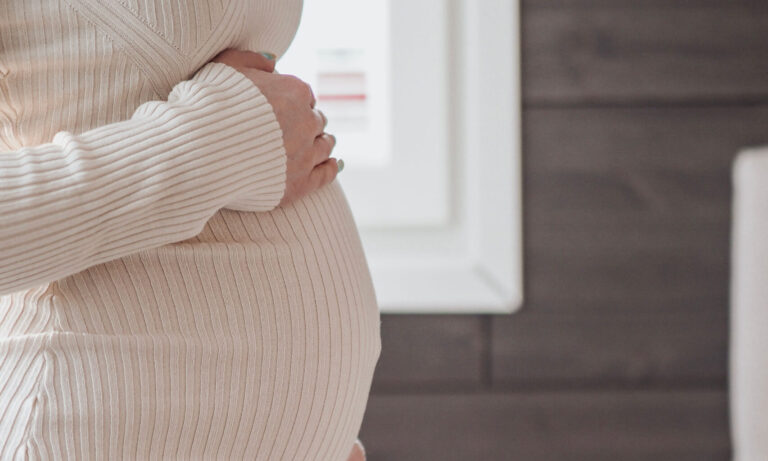Pregnancy is a unique time, bringing with it the joy of anticipation but also challenges. One of the most common challenges of the early pregnancy is nausea, which can have a significant impact on the expectant mother’s daily life. While each experience is unique, fortunately there are many effective remedies and tips that can help ease these symptoms. In this article, we share the best advice and practical tips for managing pregnancy nausea so you can focus on fully enjoying your pregnancy.
Understand the basics of pregnancy nausea
Pregnancy nausea is very common, affecting around 70-80% of pregnant women. It is part of the normal course of pregnancy and can be a sign of a healthy and progressing pregnancy. Pregnancy sickness is caused by hormonal changes in the body that occur at the beginning of pregnancy. The most important of these is the pregnancy hormone, hCG, which rapidly increases in levels during early pregnancy. As estrogen and progesterone levels increase, the body reacts in a number of ways, including an increased sense of smell, which can trigger nausea. Most commonly, pregnancy nausea starts around the sixth week of pregnancy and typically ends around 12-16 weeks, but for some mothers it may continue throughout pregnancy. Despite the discomfort that pregnancy nausea and vomiting cause, they are usually harmless to both mother and fetus unless the nausea leads to severe dehydration or weight loss.
Find out more about the signs of early pregnancy and how to recognise them here!
Improve your eating rhythm: Small and regular meals
For pregnant mothers who suffer from morning sickness, small and regular meals are usually a better option than large meals. Why is this?
Your body needs a steady supply of energy, so it’s better to eat in small portions throughout the day rather than two or three larger meals. Pregnancy nausea can be made worse by an empty stomach, so it’s important to avoid too long meal breaks. You can start your day with a light breakfast and then eat small meals or snacks about every 2-3 hours. Good snack ideas include fruit, yoghurts, nuts and protein bars. Carbohydrate-rich foods such as bread, pasta or rice can also help to control feelings of nausea. Remember that it’s important to listen to your body, some foods can make you feel better while others can make you feel worse.

Find the right foods for you: What to avoid and what to favour?
Food choices play a key role in the management of pregnancy sickness. The first advice is to avoid foods and smells that you know trigger nausea. In general, it is recommended to choose fresh, mild and easily digestible foods. Many expectant mothers find relief by eating things like rice cakes, raisins or biscuits. Getting protein at every meal is also good as it can ease nausea. You could try adding dairy products, meat, beans or nuts to your daily diet. But avoid greasy, spicy or very sweet foods, which can irritate your stomach even more. The temperature of food can also have an effect on nausea – for many people, cold foods taste better than warm ones. Keep your own well-being at the forefront and choose foods that make you feel better. That’s why it’s important to find a diet that’s right for you.
Why goat’s cheese should not be eaten during pregnancy? Read more here!
Home remedies for pregnancy nausea: Ginger and other natural remedies
There are also many proven home remedies to help you with pregnancy nausea. One of the best known is ginger, which has been proven effective in treating nausea during pregnancy. Ginger can be enjoyed with tea, food, raw or in capsules. Citrus fruits, such as lemon or lime, can also make you feel better and can be added to water or tea, for example. Eating saltines may also help relieve nausea. In addition, acupressure, which involves applying pressure to specific points on the wrist, has worked well for some expectant mothers. In addition to these home remedies, there are many other natural remedies, such as aromatherapy or yoga, that can bring relief from pregnancy nausea. The important thing is to find a way that works for you to manage your nausea and make your pregnancy as comfortable as possible.
Stay hydrated: The importance of water and electrolyte balance
Hydration is extremely important in dealing with pregnancy nausea. Nausea can lead to vomiting and therefore dehydration, which can lead to serious health problems such as kidney problems or electrolyte imbalances. It is therefore important to drink enough fluids every day. The recommended amount is about eight 2.5 decilitre glasses a day, or even more if you have vomited. Drinking water is usually the best option, but you can also drink milk, fruit juices or vegetable juices to increase your fluid intake. Whole fruits and vegetables, which are rich in water, are also good sources of fluid. To stay well hydrated, it’s a good idea to keep a water bottle with you and drink small amounts often. Electrolyte drinks or powders can also help keep your electrolyte balance in good order if you are vomiting a lot.

Rest is the key: Tips for relaxation and stress management
Love and stress can make pregnancy sickness worse, so it’s important to take time out and look after your mental health. Try to get enough sleep and use relaxation techniques such as meditation, breathing exercises or yoga. Remember that it is perfectly acceptable and normal to feel exhausted, especially during the beginning of pregnancy. Talking to your partner, friends or family can ease your mind and give you the support you need. Talking to a professional such as a therapist can also be helpful. If rest and relaxation do not seem to help, it is a good idea to talk to a health professional about possible options and solutions. Make sure you get all the support you need at this sensitive time in your life. Take care of yourself – it’s the best gift you can give yourself and your baby.
Why shouldn’t you eat salty liquorice when you’re pregnant? Read more here!
Nausea is a sign that your body is working hard to create new life.
Exercise and pregnancy sickness: Light activity can help
Although it can feel difficult to move around when you’re feeling nauseous during pregnancy, light exercise can really help to manage symptoms and prepare your body for labour. Exercise triggers the production of endorphins, the body’s natural painkillers and mood boosters. It can also improve sleep quality, which is important for managing nausea. Try activities such as walking, yoga, swimming or cycling. But the most important thing is to listen to your body and only do what feels good. If you can’t move, don’t feel guilty about it. Feeling sick is a sign that your body is working hard to create new life, so it’s perfectly normal to feel tired. Every day you can move even a little is a win.
Acupressure and acupuncture: Old methods to help
Acupressure and acupuncture are traditional Chinese treatments that have proven effective in relieving nausea in pregnancy. In acupuncture, thin needles are inserted into specific points on the body, while in acupressure, the same points are pressed with fingers without needles. Both methods aim to balance the body’s energy and relieve symptoms. For nausea in particular, there is an acupoint called ‘P6′, located about three fingers’ width from the wrist on the inner side of the arm. Pressing or massaging this point can help reduce nausea. Acupressure wristbands, which can be bought from a pharmacy and which press on this point, are also a popular treatment for nausea in pregnancy. However, it is important to remember that although acupuncture and acupressure are generally safe, they should be used under the guidance of a professional, especially during pregnancy.
For nausea in particular, there is an acupoint called ‘P6’.
Support and peer support: Share your experiences and tips with other expectant mothers
There is no one right way to treat motion sickness – what works for one person may not work for another. That’s why sharing your own experience and tips with other expectant mothers can be really helpful. It’s comforting to remember that you’re not alone, and hearing how others are dealing with similar challenges can be enlightening. There are many forums and social media groups on the internet where you can exchange ideas with others in the same situation. The support and understanding of loved ones, especially a spouse or a partner, is also extremely important when dealing with a feeling of nausea. Don’t hesitate to ask for help or practical support, such as help with housework or cooking. You should be able to enjoy your pregnancy as much as possible, so support and help can be invaluable during this period.










